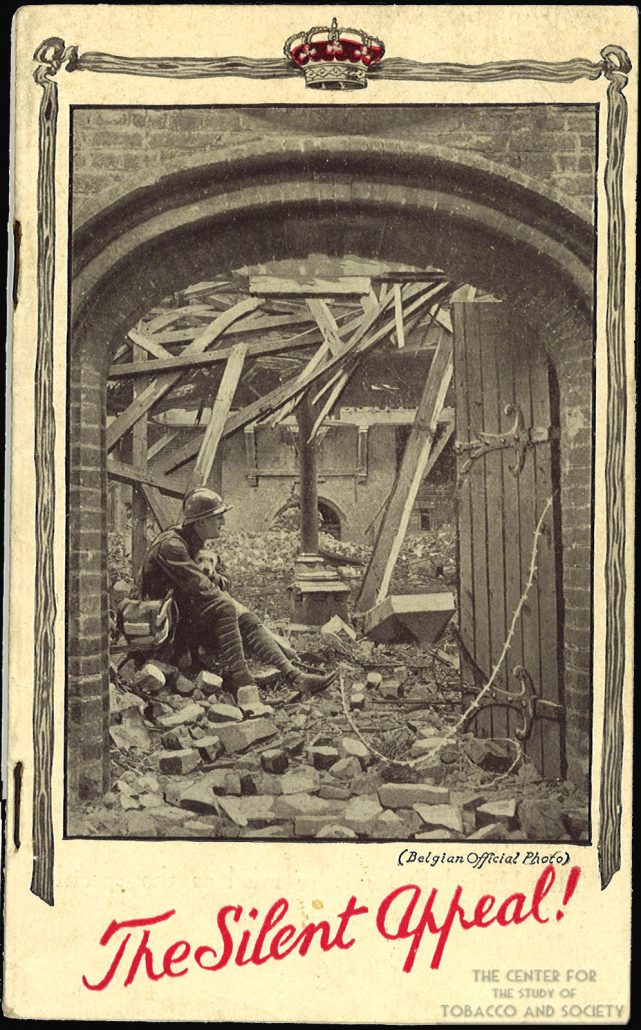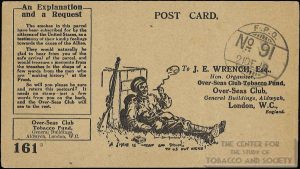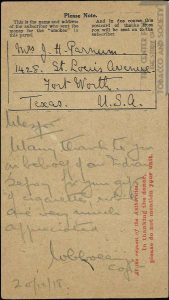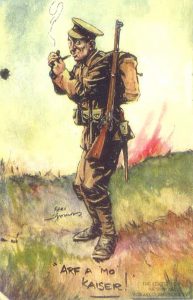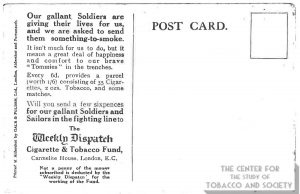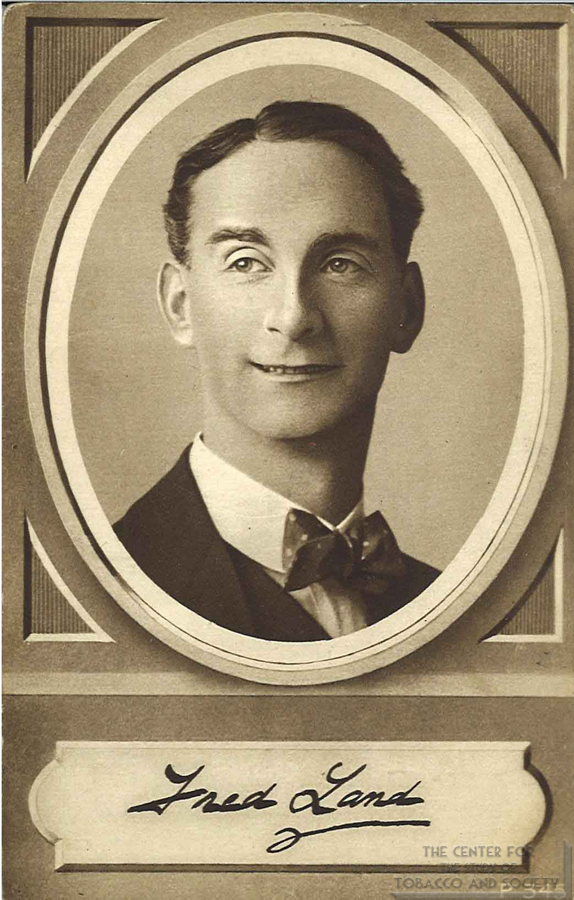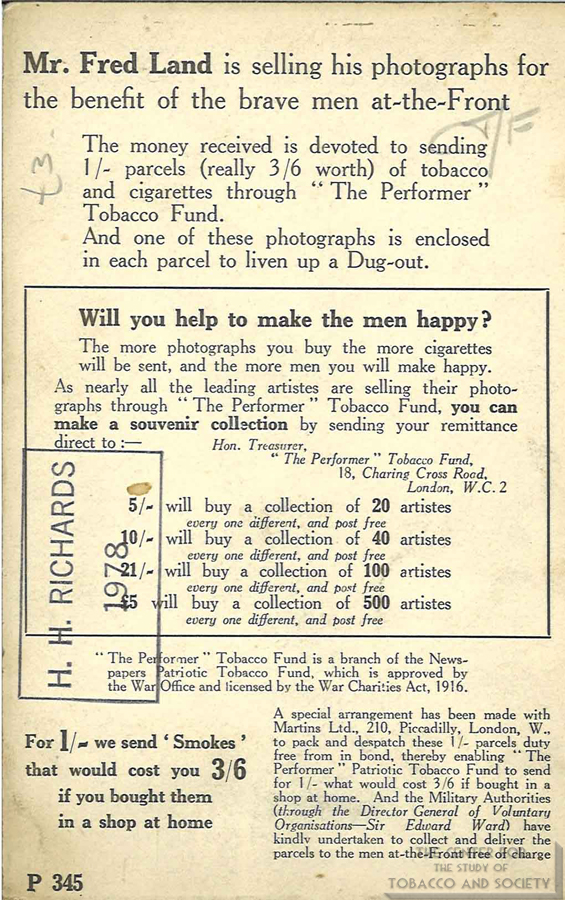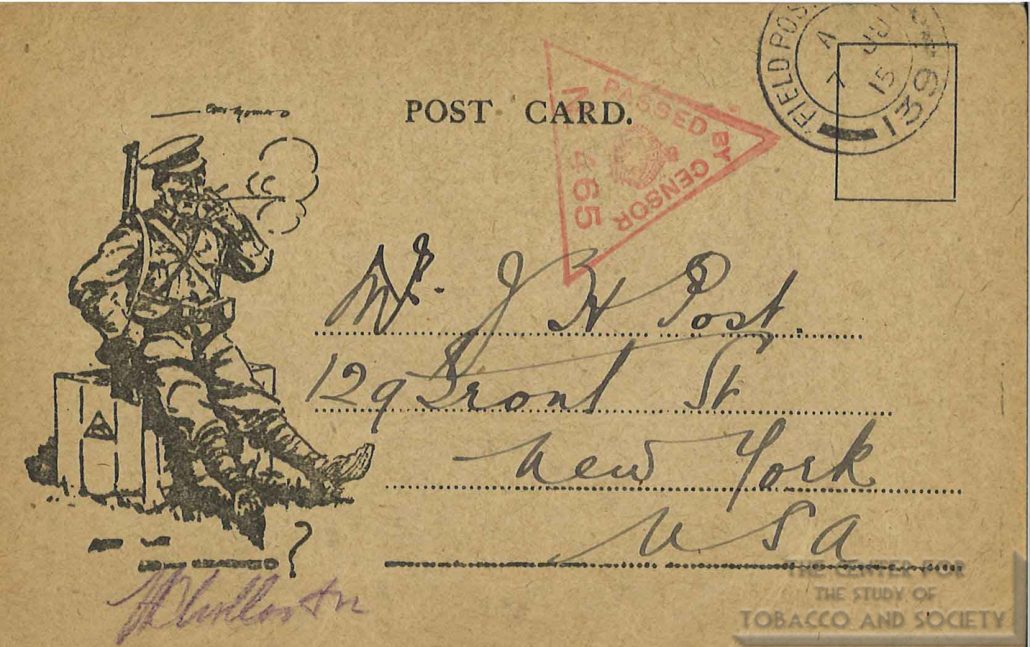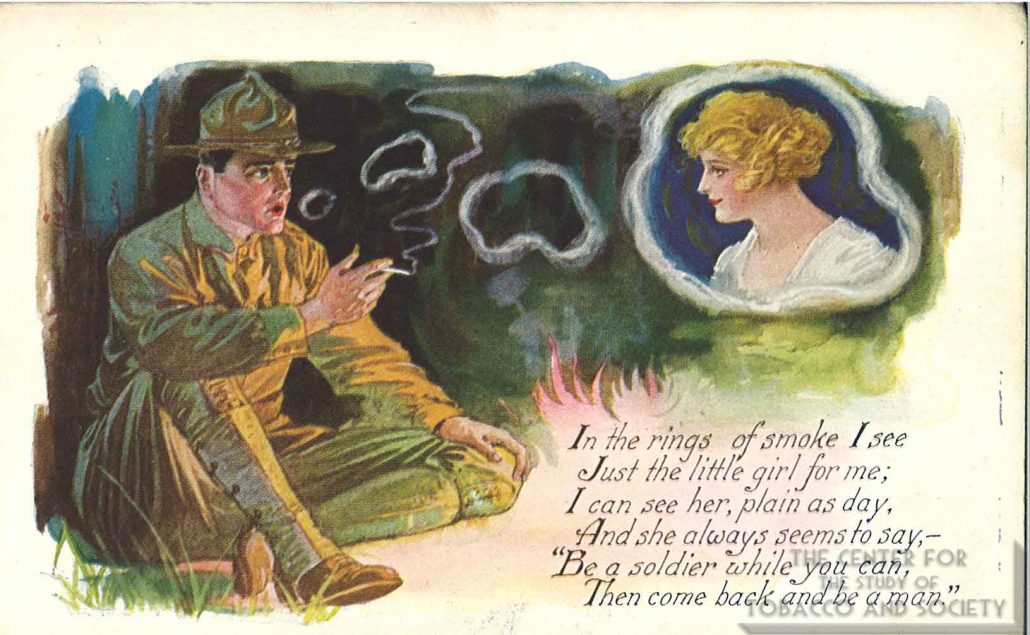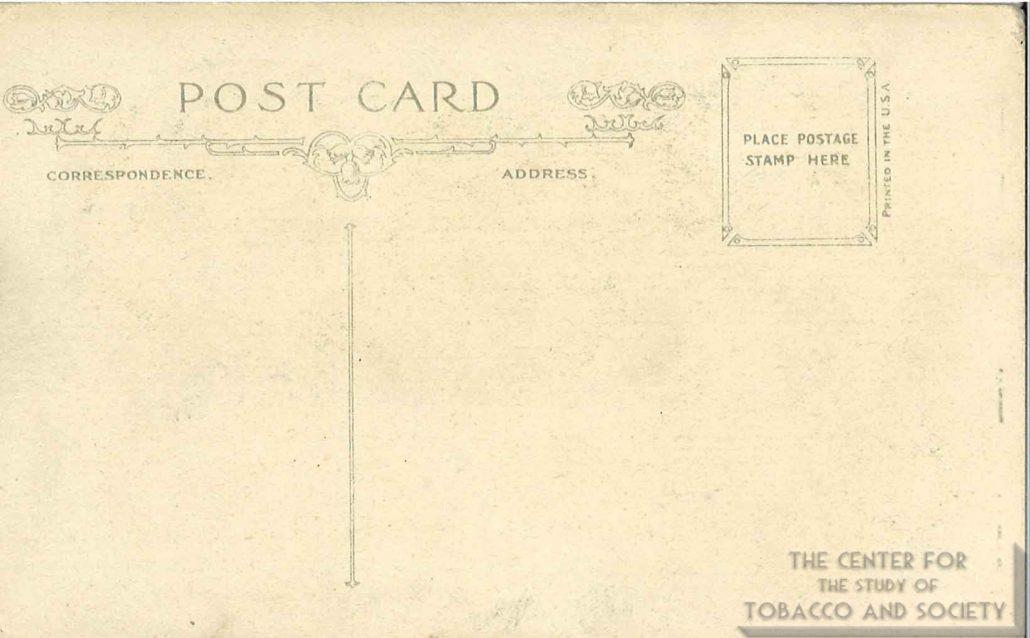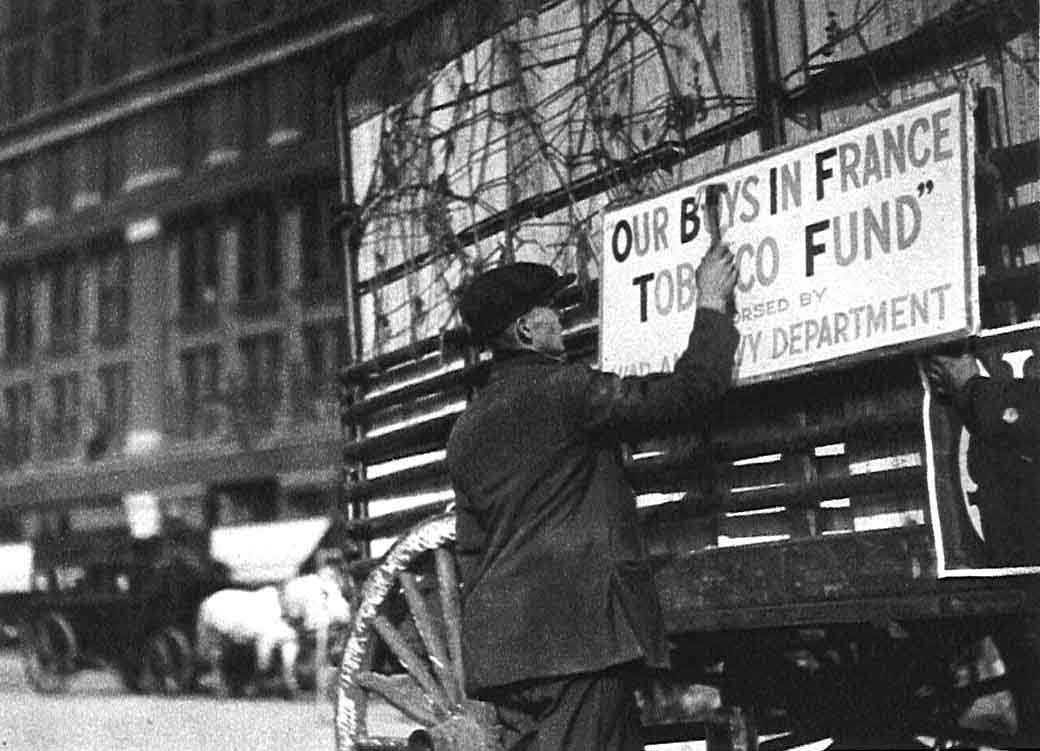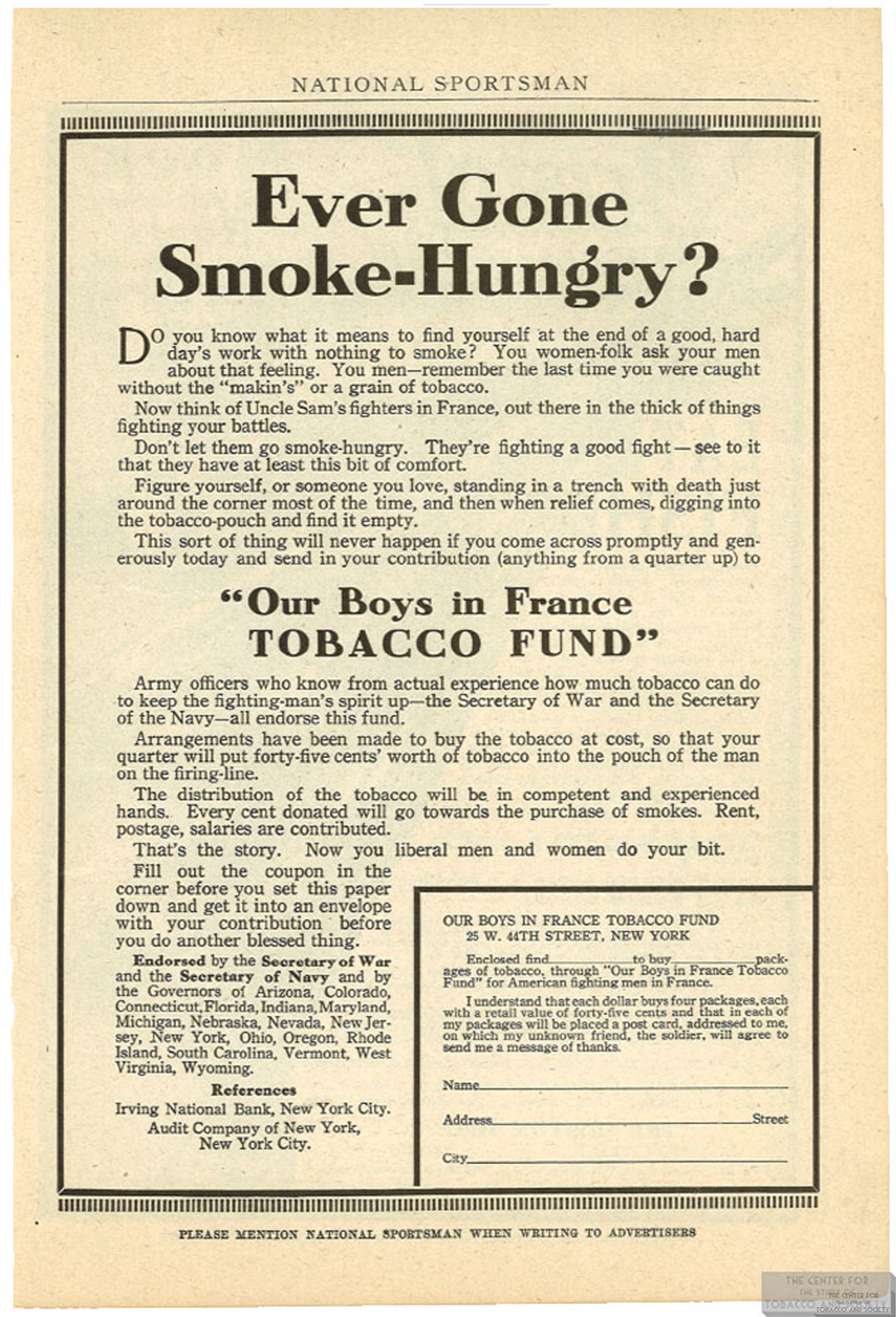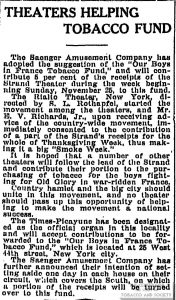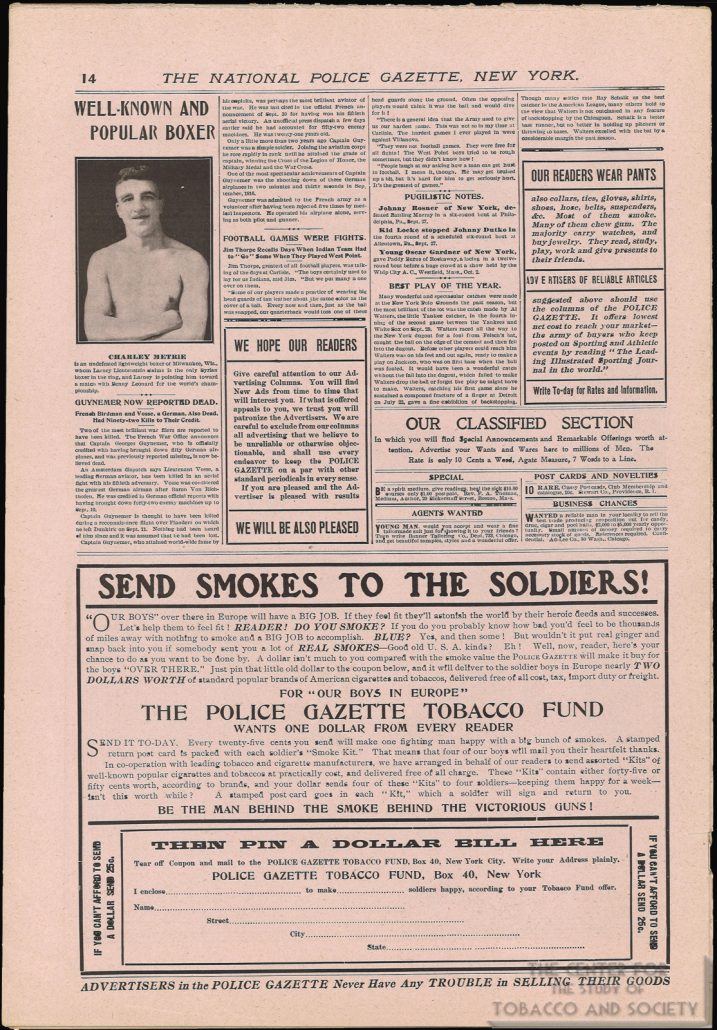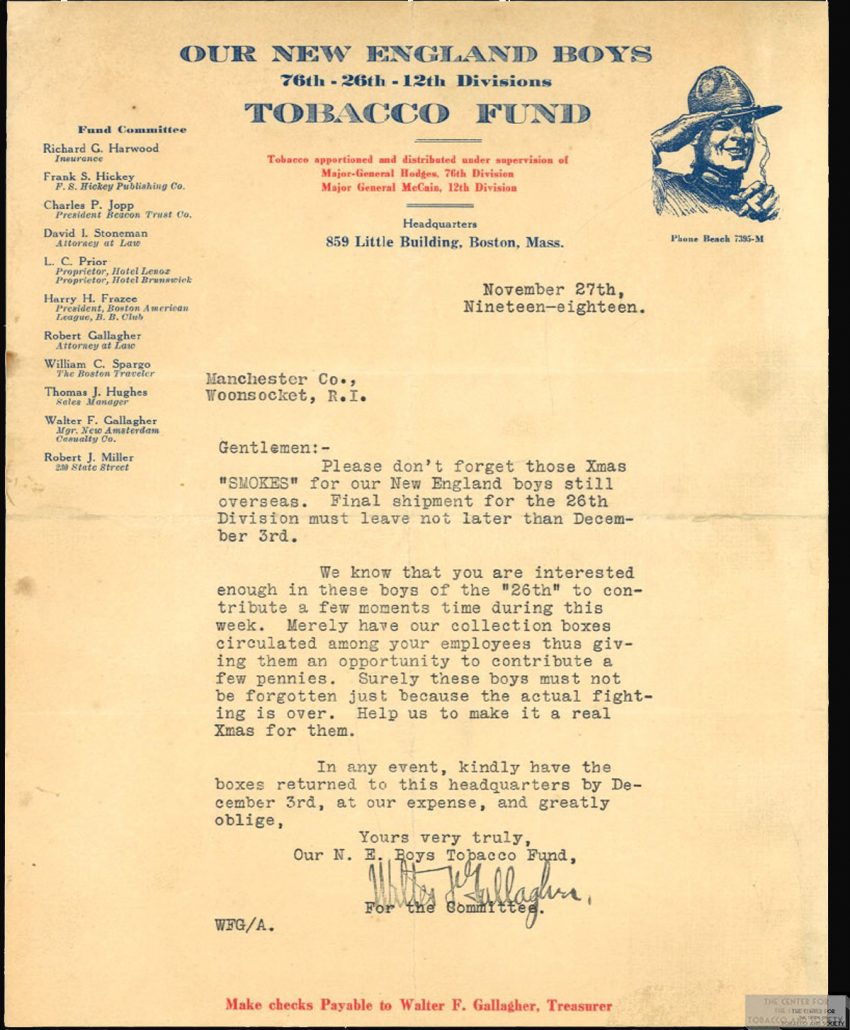Tobacco as Much as Bullets
The Call for Cigarettes
When asked what America needed to win the war, General John Pershing, the commander of the American Expeditionary Forces on the Western Front, replied, “Tobacco as much as bullets.” Across the nation, tobacco funds were established by community groups, businesses, and relief organizations (such as the American Red Cross, The Salvation Army, and the Young Men’s Christian Association [YMCA]) to send tobacco products to soldiers overseas. These tobacco funds made smoking synonymous with the war effort, introduced a new generation to cigarettes, and undermined the crusading anti-smoking efforts of groups such as the Women’s Christian Temperance Union and the Non-Smokers Protective League by ennobling tobacco.


